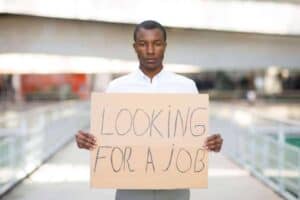Instead of fighting for the ANC to introduce a welfare state that will drain resources, the fight should be for a developmental state.

The recent violence and looting involving the poorest of the poor in KwaZulu-Natal and Gauteng – albeit hijacked by the criminals and politically bankrupt opportunist elements – proved there is an urgent need for a new socioeconomic order in South Africa.
An economic Codesa – modelled on the pre1994 negotiation process with the Convention for a Democratic South Africa – has been raised by various economists, including respected scenario expert Clem Sunter. This was again raised this week by Roelf Meyer, former National Party (NP) minister and the moribund party’s former secretary-general.
It’s assuring for such a proposal to emanate from one of the architects of our constitutional democracy. Meyer is respected as the man who negotiated for the demise of apartheid. FW de Klerk and he are regarded as sellouts within the conservative circles of the white politics, but he was one of the verligtes in the NP government.
It’s no wonder he joined his former NP colleagues, such as its leader Marthinus van Schalkwyk and former foreign affairs minister Pik Botha, to enlist in the former enemy camp, the ANC. This after a short spell at the United Democratic Movement, which he founded with Bantu Holomisa.
According to Meyer, after the political settlement succeeded, it was necessary that an economic Codesa be convened to trash out a new economic blueprint that will address the socioeconomic conditions that gave birth to the recent unrest.
He highlighted the usual challenges of inequality, poverty and unemployment at the centre of criminality, hunger and joblessness haunting black communities.
Perhaps the unrest and unnecessary loss of lives could have been avoided had this matter been tackled years earlier. Every report or survey released since 1994 say despite that year’s political epoch, South Africa remained the most unequal society in the world.
That inequality stems from the current economic model inherited from apartheid, where the economy was skewed in favour of whites. As Meyer observed, the current model failed the majority of the population: black and poor.
The poor are always the cannon fodder to opportunistic elements who used their vulnerability to pursue their nefarious agendas.
During the violence, some initially supported the campaign for Jacob Zuma’s release led by radical economic transformation forces, but the free lunch of massive looting turned into anarchy.
The real agenda was economic sabotage – but it went wrong because the poor did not care about the internal politics of the ANC. The torching of property was clearly part of criminality.
As analyst Prof Barry Hanyane said, the stealing of luxury goods such as TVs dispelled the notion of poverty as the reason for the looting.
Instead of fighting for the ANC to introduce a welfare state that will drain resources, the fight should be for a developmental state. If implemented properly, it can address poverty while increasing economic growth.
The developmental state envisioned in the National Development Plan is a pipe dream due to lack of implementation. Heed Meyer’s warning: focus on ending inequality, or face the worst social revolt in post-1994 South Africa.






